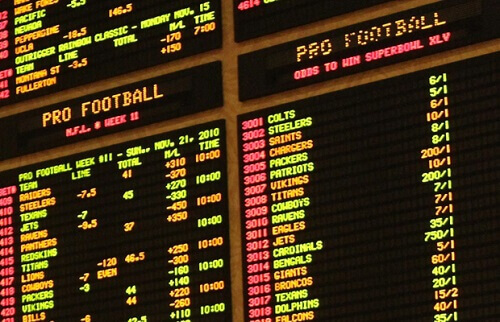Sports betting is on the tip of every American’s lip again as the Supreme Court mulls over the decision to legalize the polarizing gambling sector. The move to make sports betting into law has not garnered unanimous support, with the US major leagues opposing the decision on multiple grounds. Unfortunately, some of the major leagues’ representatives do not share the same sentiment, going on record to proclaim their support of sports betting.
The law seeking to be overturned, namely the Professional and Amateur Sports Protection Act (PASPA), was enacted in 1992 to prevent states from permitting local sportsbooks to accept wagers on athletic competitions. Legal experts have weighed in on the subject, expecting the law to be overturned in the coming weeks largely due to the lobbying efforts and the support from the representatives from the main opposition.

Lobbyers of the Legalization of Sports Betting
An in-house lawyer for Major League Baseball (MLB), Bryan Seeley, spoke to a committee of Missouri lawmakers in support of sports betting, highlighting that it could result in “more engagement” and “more sponsorships” for the league. Funny enough, the MLB forms part of the five main leagues that oppose the repealing of the law, which include the National Basketball Association (NBA), Professional Golfers Association (PGA), National Hockey League (NHL) and the National Football League (NFL).
New Jersey is the main proponent of sports betting, seeing as how the state is a hub for American casino gambling. This is not the first attempt by New Jersey to legalize sports betting, with the last time being in 2011. Seeley’s comments have dented the joint leagues resolve, as he purports that there lies an ‘opportunity for MLB to profit on this’.
Objection to Sports Betting
All the five leagues player’s union released a joint statement in opposition to sports betting. The association’s overall objection was that it and the players were excluded from the discussion. Following their own collective assessment, looking at the legalities and ‘human consequences of allowing sports betting to become mainstream’, they found that the integrity of the game and the subsequent player’s right to privacy may be compromised as a result. It further proposed an ‘integrity fee’, a 1 percent levy that would ‘go to the leagues in which the bet is placed on and spent towards ensuring proper oversight of matters such as point shaving or match-fixing’.
The Supreme Court is set to offer more insight on the matter on the 30th of April. For more on sport betting news and everything related to gambling in America, stay tuned to Casinous.com.




